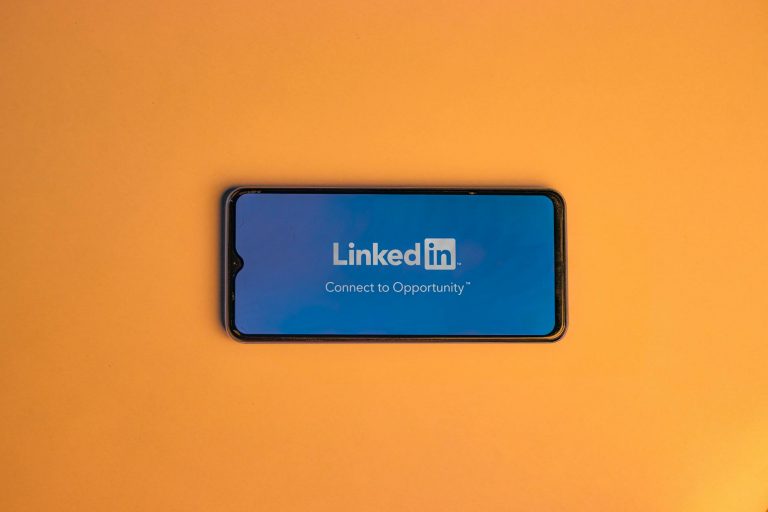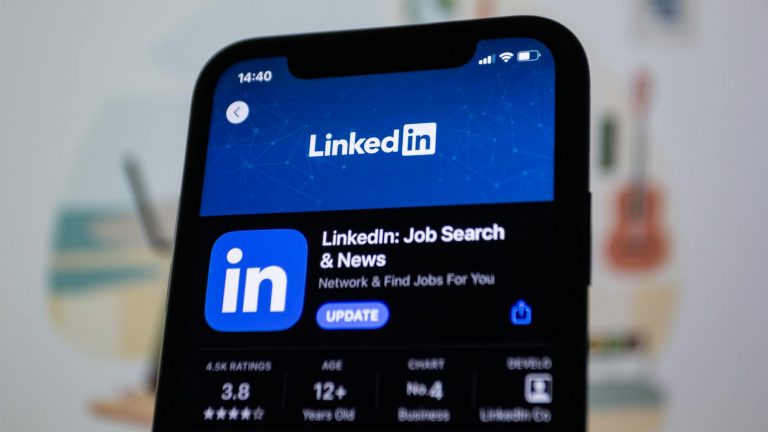
Which Messaging App Offers More Privacy in 2025?
In an era where digital privacy concerns continue to grow, messaging apps have become central to the privacy conversation. A recent study by the Pew Research Center found that 79% of Americans are concerned about how companies use their personal data, yet many still use messaging platforms with questionable privacy practices.
If you’re among the growing number of people seeking secure communication channels, you’ve likely encountered both Telegram and Signal as potential options. While both platforms market themselves as privacy-focused alternatives to mainstream messaging apps, they offer fundamentally different approaches to user privacy and security.
This comprehensive guide examines how Telegram and Signal implement privacy protections, where they succeed, where they fall short, and which one ultimately deserves your trust as a truly private messaging platform.
Understanding Encryption: The Foundation of Messaging Privacy
Before comparing specific apps, it’s important to understand how encryption works to protect your messages. Think of encryption as a locked box containing your message. Only someone with the correct key can open the box and read what’s inside.
End-to-End Encryption Explained
End-to-end encryption (E2EE) represents the gold standard for secure messaging. When a messaging app uses E2EE, messages are encrypted on your device before being sent and can only be decrypted by the recipient’s device. This means that even the company running the messaging service can’t read your messages—they only see unintelligible encrypted data passing through their servers.
To understand why this matters, consider a simple analogy: Traditional encryption is like sending a letter that the mail carrier (the company) can open and read before delivering it to the recipient. End-to-end encryption is like sending a locked box where only you and the recipient have the key—the mail carrier merely delivers the box without being able to see what’s inside.
Signal’s Approach to Privacy
Encryption Implementation
Signal has built its entire platform around privacy from the ground up. The app uses the Signal Protocol, an open-source encryption protocol widely regarded by cryptography experts as the most secure messaging protocol available.
Some key aspects of Signal’s encryption approach include:
- Universal E2EE: Signal applies end-to-end encryption to all communications by default—texts, voice calls, video calls, group chats, and media sharing are all automatically protected.
- Perfect Forward Secrecy: Signal generates new encryption keys for each message, meaning that if one message’s encryption is somehow compromised, all other messages remain secure.
- Open-Source Verification: The complete Signal codebase is open-source, allowing security researchers to verify that the encryption works as claimed and has no backdoors.
- Minimal Metadata Storage: Signal is designed to collect and store as little metadata (information about your communications) as possible.
Data Collection Practices
Signal’s privacy commitment extends beyond encryption to its data collection practices:
- Minimal User Information: Signal only requires a phone number to create an account. It doesn’t collect names, email addresses, physical addresses, or other identifying information.
- No Message Content Storage: Signal’s servers don’t store the content of any messages once they’re delivered.
- Limited Metadata Retention: Signal pioneered a technique called “sealed sender” that obscures who is messaging whom, even from Signal’s own servers.
- No Advertisement Targeting: Signal doesn’t use your data for ads or share it with third parties for marketing purposes because they don’t collect data to begin with.
Ownership and Funding Model
Signal’s organizational structure reinforces its privacy commitments:
- Non-Profit Organization: Signal is developed by the Signal Foundation, a non-profit organization dedicated to privacy.
- Independent Funding: Initially funded by WhatsApp co-founder Brian Acton, Signal relies on donations rather than data monetization or advertising.
- Mission-Driven: Signal’s explicit mission is to develop open-source privacy technology that protects free expression.
Telegram’s Approach to Privacy
Encryption Implementation
Telegram takes a notably different approach to encryption than Signal:
- Optional E2EE: Telegram only offers end-to-end encryption in “Secret Chats,” which must be manually enabled for each conversation. Regular chats and group chats use client-server encryption instead.
- Client-Server Encryption: In regular chats (the default), messages are encrypted between your device and Telegram’s servers, but Telegram holds the keys and can theoretically access the content.
- Proprietary Protocol: Telegram uses its own encryption protocol called MTProto, which has faced criticism from some cryptography experts for not following established cryptographic best practices.
- Cloud-Based Architecture: Regular Telegram chats are stored on the company’s servers, allowing multi-device access and chat history but reducing privacy.
Data Collection Practices
Telegram’s data handling reflects its different priorities:
- Chat Storage: Regular (non-Secret) chats are stored on Telegram’s servers, potentially indefinitely.
- Contact Information: Telegram collects phone numbers and allows users to share more personal information in their profiles.
- Metadata Collection: Telegram collects and stores significant metadata about communications, including who is talking to whom and when.
- Group Membership: Information about which groups you belong to is stored on Telegram’s servers.
Ownership and Funding Model
Telegram’s business structure presents some privacy considerations:
- For-Profit Company: Telegram is a for-profit entity founded by Pavel Durov.
- Unclear Revenue Model: For years, Telegram operated without a clear revenue model, raising questions about long-term sustainability.
- Recent Monetization: Telegram has begun implementing ads in public channels and premium subscriptions, potentially shifting incentives.
Comparative Analysis: Key Privacy Features
Encryption by Default
Signal: All communications are automatically protected with end-to-end encryption. There are no settings to configure or features to enable—your privacy is protected from the moment you start using the app.
Telegram: Only Secret Chats offer end-to-end encryption, and you must manually initiate these for each contact. Regular chats, which most users rely on, are only encrypted between your device and Telegram’s servers.
The practical impact: A new Signal user who doesn’t change any settings still has maximum privacy protection. A new Telegram user who doesn’t change any settings has significantly less privacy protection.
Group Chat Security
Signal: Group chats in Signal are end-to-end encrypted, meaning even Signal cannot read the messages exchanged in groups.
Telegram: Regular group chats in Telegram are not end-to-end encrypted. The company can technically access all content shared in these groups. Furthermore, Telegram doesn’t offer Secret Chats for groups at all, meaning there’s no way to have truly private group conversations on the platform.
Data Storage Practices
Signal: Messages are stored locally on your device, not on Signal’s servers once delivered. If you lose your device or delete the app, those messages are gone unless you’ve manually created a backup.
Telegram: Regular chats are stored on Telegram’s servers by default, allowing you to access your chat history across multiple devices. While convenient, this means Telegram has access to your message content in a way Signal does not.
Metadata Protection
Signal: Implements advanced techniques to minimize metadata collection, including:
- The sealed sender feature that obscures who is messaging whom
- No logging of user IP addresses
- No records of who your contacts are
Telegram: Collects and stores substantial metadata, including:
- Who you’re communicating with
- When communications occur
- Group membership information
- IP addresses and device information
Security Audits and Transparency
Signal: The Signal Protocol has undergone multiple independent security audits. Being open-source, security researchers can continuously review the code for vulnerabilities or privacy concerns.
Telegram: While parts of Telegram are open-source, its server code is closed-source, and its MTProto encryption protocol has not undergone the same level of independent scrutiny as Signal’s protocol.
Feature Comparison Beyond Privacy
While privacy is paramount for many users, functionality also matters. Here’s how the apps compare on features:
User Experience and Interface
Signal: Offers a straightforward, minimalist interface focused on secure messaging. Recent updates have added more features while maintaining simplicity.
Telegram: Provides a feature-rich experience with extensive customization options, larger group capabilities, and more elaborate media sharing.
File Sharing and Storage
Signal: Allows secure file sharing but with more modest size limits than Telegram.
Telegram: Offers generous file sharing capabilities (up to 2GB per file) and functions somewhat like a cloud storage service with its persistent server-side storage.
Channel and Community Features
Signal: Has more limited broadcasting capabilities, primarily designed for secure person-to-person or group communication.
Telegram: Excels with its Channels feature for one-to-many broadcasting, supporting unlimited subscribers and extensive community-building tools.
Self-Destructing Messages
Signal: Offers disappearing messages across all chats, with customizable timers.
Telegram: Provides self-destructing messages only in Secret Chats, with similar timer options.
Real-World Privacy Considerations
Government Requests and Legal Compliance
When governments request user data, the apps respond differently:
Signal: Due to its minimal data collection, Signal has very little information to provide even when legally compelled. Their transparency reports consistently show they have almost no user data to hand over.
Telegram: Has more user data available to potentially share. While Telegram states it has never shared user data with third parties, its storage of unencrypted messages means it could theoretically be compelled to do so.
History of Security Incidents
Signal: Has maintained a strong security record with no major breaches or vulnerabilities exploited in the wild.
Telegram: Has experienced several security concerns, including:
- Vulnerabilities in its MTProto protocol identified by researchers
- Issues with its default privacy settings that have exposed user phone numbers
- Concerns about content moderation and extremist content
Expert Opinions and Endorsements
Security experts and privacy advocates have generally expressed stronger confidence in Signal:
- Edward Snowden, whistleblower and privacy advocate, has repeatedly endorsed Signal
- The Electronic Frontier Foundation recommends Signal for secure communications
- Cryptography experts like Matthew Green have expressed reservations about Telegram’s security model
Making Your Decision: Which App Better Protects Your Privacy?
Based on the comprehensive analysis above, here’s a clear assessment of which app offers stronger privacy protections:
Signal is Better For:
- Users seeking maximum privacy protection without configuration
- Communications that require the highest level of confidentiality
- People concerned about government surveillance or data requests
- Users who prioritize security over feature richness
- Those who prefer a service with a privacy-focused business model
Telegram is Better For:
- Users who want more features and are willing to trade some privacy
- Those who need robust channel broadcasting capabilities
- Users who value cloud chat synchronization across multiple devices
- People who need large file sharing capabilities
- Users who are willing to manually enable Secret Chats for sensitive communications
Practical Privacy Tips Regardless of Your Choice
Whichever platform you choose, consider these additional privacy measures:
- Enable available security features:
- On Signal: Set up a PIN, enable registration lock, and use disappearing messages for sensitive conversations
- On Telegram: Use Secret Chats for sensitive communications, enable two-factor authentication, and review privacy settings
- Verify security codes/keys with important contacts to prevent man-in-the-middle attacks
- Keep your app updated to benefit from the latest security patches
- Be mindful of screen captures – neither app can prevent the person you’re communicating with from taking screenshots
- Consider device security – even the most secure messaging app can’t protect messages on an already-compromised device
Conclusion: The Clear Privacy Winner
If privacy is your primary concern, Signal is unquestionably the superior choice. Its universal end-to-end encryption, minimal data collection, and privacy-focused design and business model make it the gold standard for secure messaging.
Telegram, while offering an impressive feature set and optional encryption for one-on-one chats, falls significantly short of Signal’s privacy protections in its default configuration. The lack of end-to-end encryption for regular chats and groups, server-side message storage, and greater metadata collection all contribute to a fundamentally less private experience.
The choice ultimately depends on your personal privacy threshold and feature requirements, but for users seeking the most private messaging experience possible, Signal provides substantially stronger protections.
Frequently Asked Questions
Does Signal collect any user data at all?
Signal collects minimal technical information required to operate the service, primarily your phone number and when you last connected to Signal’s servers. It doesn’t collect or store message content, contact lists, location data, or other personal information.
Can Telegram read my messages?
In regular Telegram chats (the default), yes—technically Telegram can access your message content since it holds the encryption keys and stores messages on its servers. Only in Secret Chats, which use end-to-end encryption, is Telegram unable to read your messages.
Are either Signal or Telegram completely anonymous?
Neither app offers complete anonymity as both require phone numbers for registration. However, Signal collects significantly less identifying information beyond your phone number than Telegram does.
What happens if someone hacks into Signal or Telegram’s servers?
If Signal’s servers were compromised, the attacker would gain very little information because message content is end-to-end encrypted and not stored on servers. If Telegram’s servers were compromised, regular (non-Secret) chats could potentially be exposed because they’re stored on Telegram’s servers and not protected by end-to-end encryption.
Can these apps protect me if my own device is already compromised?
No messaging app can protect your communications if your device itself is compromised. Both Signal and Telegram operate on the assumption that your device is secure.
Do governments or law enforcement agencies have backdoor access to either app?
Signal has been designed specifically to make backdoor access impossible. Its open-source nature means any attempted backdoor would likely be discovered. Telegram has denied creating backdoors, but its partially closed-source nature makes this harder to verify independently.
External Links:













